Stars with spine: Media personalities who voiced out for students
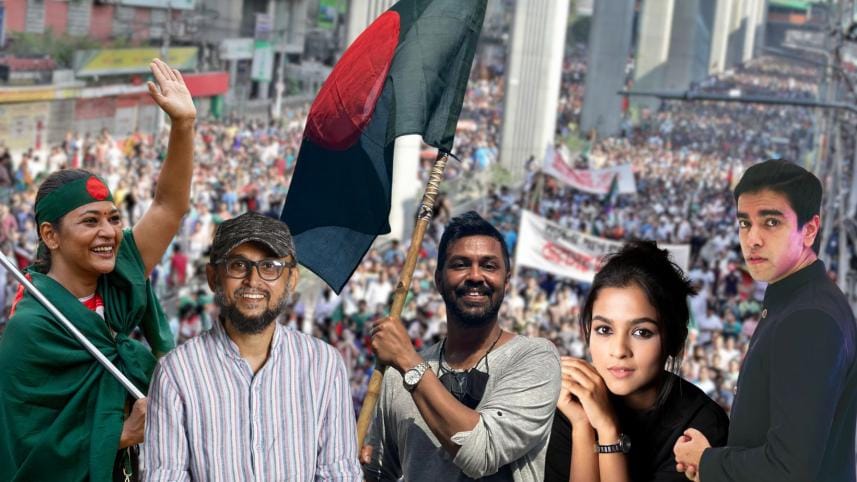
"The hottest places in Hell are reserved for those who, in a period of moral crisis, maintain their neutrality," wrote Italian poet Dante Alighieri in his famous "Inferno".
This quote was widely circulated on social media during the peak of the student-led quota reform protest, which evolved into an anti-government movement. This protest became one of the most significant and largest mass uprisings the country has seen since its independence.
In such challenging times, when protesters and civilians were indiscriminately killed, wholesale arrests, block raids, and a nationwide internet shutdown violated citizens' fundamental rights, keeping the nation on edge for weeks– only a few had the courage to raise their voices against the oppression and injustice.

As early as July 15, violent clashes erupted between student protesters and Bangladesh Chhatra League (BCL) activists at Dhaka University, resulting in around 300 injuries. In response, a wave of support emerged from celebrities, with some courageously criticising the former Awami League-led government's harsh response to the students' demands. The following day, six people were killed amid the clashes.
On July 16, veteran actor and freedom fighter Sohel Rana, renowned cultural figure Ramendu Majumdar, noted playwright Mamunur Rashid, Actors Equity Bangladesh General Secretary Rawnak Hasan, actor Niloy Alamgir backed quota reform. Meanwhile, director Ashfaque Nipun, filmmaker Mishuk Moni, author Mohammad Nazimuddin, director Khijir Hayat, actors Pori Moni and Sadia Ayman voiced their concern in a straightforward manner and criticised the former ruling party for hard-handling the protesters.
Filmmaker Mishuk Moni criticised the former government's tendency to label dissenters as traitors, saying, "In this country, speaking against the government labels you a traitor. Criticising any government official's corruption also makes you a traitor. Participating in a movement for rightful demands makes you a traitor."
On July 17, bands Artcell, Chirkutt, Shironamhin, Arbovirus, and Bangla Five joined the chorus of support. Arbovirus stated, "Quota reform is now a demand of the time." Tasrif, vocalist of Kureghar, rasied questions, "Doesn't your heart tremble when you beat another human? Those who are demanding their rights, are they so unknown to you?"
Actors Shobnom Bubly and Puja Chery raised concerns about violence. Puja stated, "What kind of freedom is this? Such violence towards women in an independent country is unacceptable. I strongly condemn it."
Sina Hasan from Bangla Five was among the first to boycott the former government-funded "Joy Bangla Concert", saying, "As an artiste, I am boycotting it. I do not want to be invited to this sycophantic concert either as an artiste or an audience member."
On July 18, as the government deployed 229 platoons of Border Guard Bangladesh (BGB) nationwide to maintain law and order amid the "complete shutdown" announced by quota reform protesters and at least 29 were killed, the country's prominent celebrities– Shakib Khan, Chanchal Chowdhury, and Afran Nisho–added their voice to the chorus of dissent. They mainly voiced concern about the injured and killed protesters. Notably, in a poetic approach, Afran Nisho, who is a son of a freedom fighter, posted a poem to express his concern.
On the same day, rapper and barrister Towfique Ahmed announced on Facebook that his law firm, Bangladesh Law Partners (BDLP), would provide assistance to the protesters. Meanwhile, Ziaul Faruq Apurba proposed to Sheikh Hasina's government to provide a solution instead of taking a violent approach.
Following a government-directed 150-hour internet blackout, services resumed on July 23, leading to increased online activism against the oppression of Sheikh Hasina's regime. On July 30, the Student Against Discrimination (SAD) Movement announced new programme rejecting government's call for nationwide mourning for victims killed in the recent violence. Following the announcement, social media platforms were flooded with red profile pictures in solidarity.
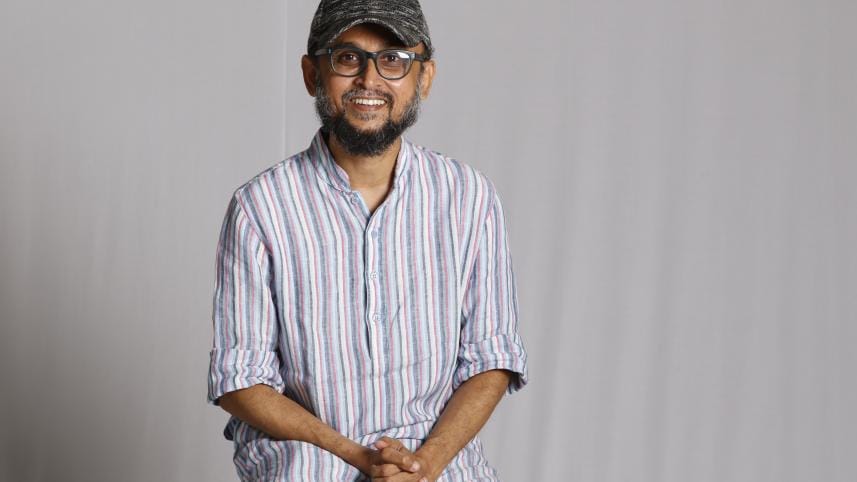
Director Mostofa Sarwar Farooki was among those who joined this campaign. He posted a lengthy status on his official Facebook page with typing assistance as he was physically unwell. In his post, he raised voice against the oppression, questioning the accountability of those in power.
Director Shihab Shaheen posted a photo featuring the children killed in recent violence on that same day. Referring to former Prime Minister Sheikh Hasina's metro rail visit, Shihab said, "I used to see leaders and public figures visiting the homes of the affected or distressed, offering comfort, inquiring about their well-being, embracing them, and sometimes even apologising. Where has that culture gone?"
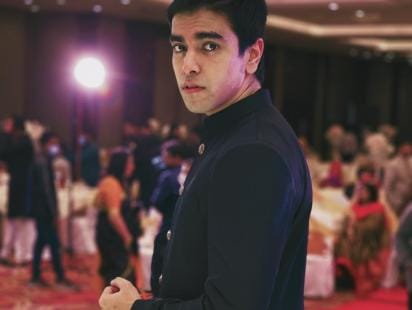
Actress Sadia Ayman wrote a sarcastic post on her social media handle hinting at the artistes who visited BTV station and mourned over inanimate objects. Popular content creator Salman Mohammad Muqtadir stood with the students since the initial days of the protests and provided assistance to them on ground.
A vast array of celebrities showed support by changing their profile pictures red, including filmmakers, directors, actors, musicians, and popular Bangladeshi bands. The list included names such as Kamar Ahmad Simon, Akram Khan, Amitabh Reza Chowdhury, Leesa Gazi, Sadia Khalid Reeti, Siam Ahmed, Azmeri Haque Badhan, Zakia Bari Mamo, Oni Hasan, Zohad, Arafat Kazi, Prince Mahmud, and many more.
On August 1, visual artistes, under the platform "Association of Visual Media Artistes", organised a protest rally at Farmgate intersection in Dhaka. Notable attendees included Ashfaq Nipun, Azmeri Haque Badhan, and Nazia Haque Orsha.

Badhan, Bangladesh's only actress to officially attend the Cannes Film Festival, emotionally expressed, "It could have been my daughter at the protest, she could have lost her life." The actress teared up as she was saying this. "Any state that kills its own people to assert power, cannot be a democracy. The government has to take responsibility for this."
As of August 2, between 150 and 266 people have died in connection with the protests, at least 10,769 individuals, many of them students, have been arrested in 673 cases across the country since July 18.
Just three days before Sheikh Hasina's resignation, on August 2, the "Artistes Against Genocide and Oppression" platform organised a rally of resistance. This diverse group included writers, musicians, photographers, and artists such as Mustafa Zaman, Rahnuma Ahmed, Imtiaz Alam Beg, and Arup Rahee, Bithi Ghosh, among others,
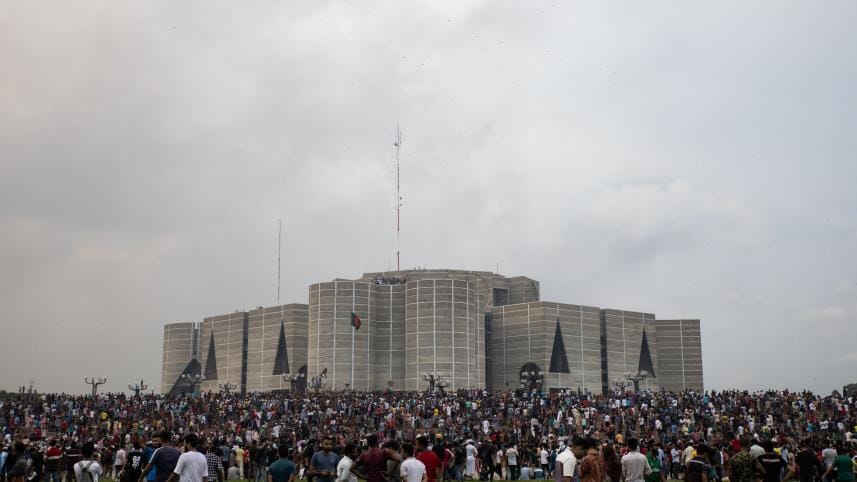
Following Sheikh Hasina's resignation on August 5, celebrities rejoiced as the student-led movement brought new dawn for Bangladesh. However, they also, put forth words of caution.
"How my independence was taken away on this day three years ago, mother nature takes its revenge," posted Pori Moni on her Facebook, soon after the news of Sheikh Hasina's resignation was announced nationwide.
Later on, she showed her concern over attacks on police stations, and several other places across the country. "We want peace—no more looting, attacking police stations, or revenge. Let's be restrained and responsible. We don't want any more bloodshed in our beloved Bangladesh."
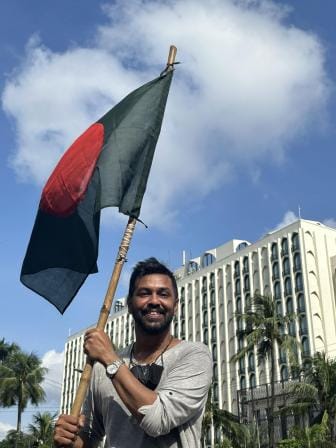
Ashfaque Nipun posted, "Bangladesh is now FREE from the long rule of the tyrant Sheikh Hasina! Thanks to the quota reform students and the people of my country for making this possible. This is just the beginning. We will continue to work on reforming our homeland."
Sadia Ayman sarcastically remarked, "Madam (Sheikh Hasina), it's good you've stepped down, but you should have presented the National Award to those who were waiting for them before you left," hinting at the potential candidates for the prestigious National Award who remained pin-drop silent during such a national and moral crisis in our country.

Salman Mohammad Muqtadir said, "This so-called Gen-Z has rescued us from the most monstrous dictator ever…I salute you, Gen-Z. You are our heroes."
Warning the citizens to remain vigilant, Mostofa Sarwar Farooki said, "We will certainly celebrate this victory! However, we must also exercise restraint and stay vigilant. After 20 years of vengeance-driven politics, we will respond with kindness and empathy. Let's remain alert over the next few days… Together we stand strong."
This unprecedented display of solidarity from Bangladesh's entertainment industry played a crucial role in amplifying the voices of the protesters and shaping public opinion during this pivotal moment in the country's history. Their courage in speaking out against injustice, even in the face of potential repercussions, set a powerful example for future generations and somewhat contributed to the eventual success of the movement.




 For all latest news, follow The Daily Star's Google News channel.
For all latest news, follow The Daily Star's Google News channel. 
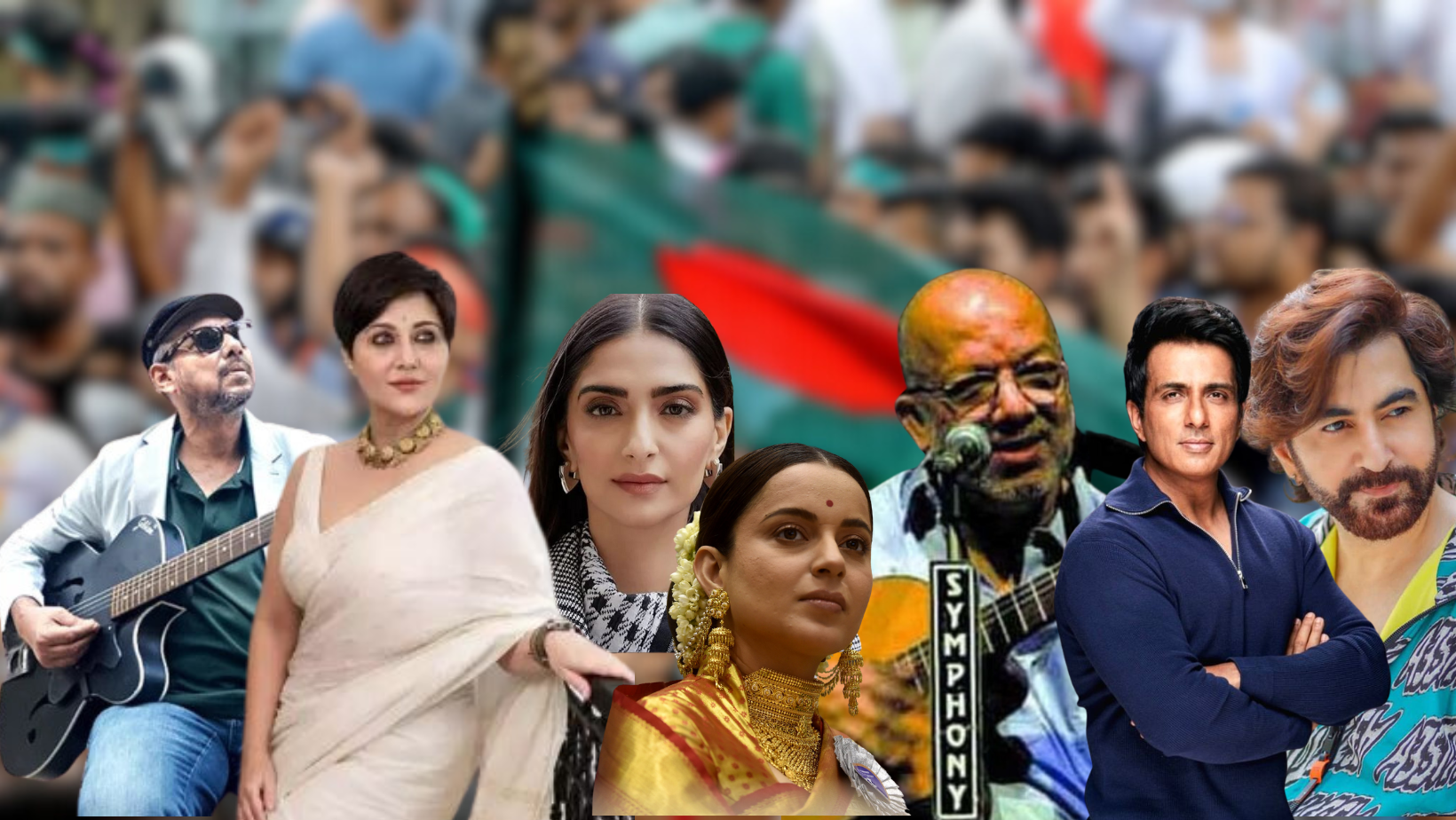
Comments